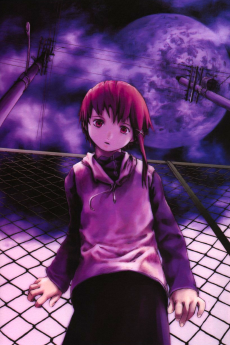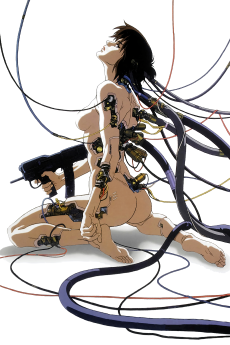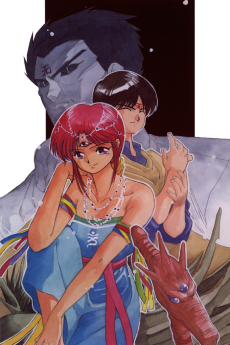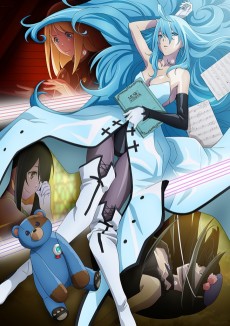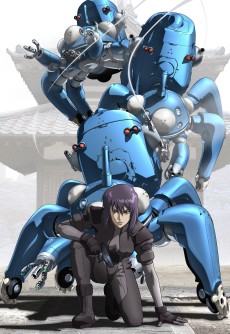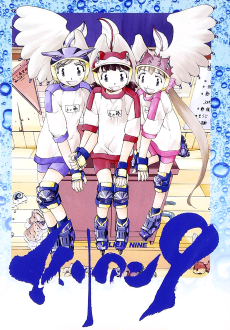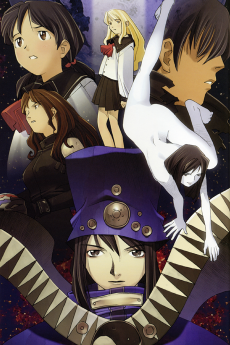KEY THE METAL IDOL
STATUS
COMPLETE
EPISODES
15
RELEASE
June 18, 1997
LENGTH
25 min
DESCRIPTION
Her classmates at school called her Key, as in the "key" to a strange mystery. Key's "grandfather" was a kindly old scientist wanting to use his skill in robotics to create peace and love in the world. But when that kindly old scientist passed away, poor Key was left behind, lacking even the ability to smile.
There still is hope, however a message left behind for Key suggests a fantastic possibility. Could it really be possible for Key to become a real, live human, if she can only win the love of 30,000 people? A dark, haunting tale of cybernetic sci-fi dreams, spiritual visions, and the turbulent world of Japanese pop music.
(Source: Discotek Media)
Note: The two last episodes have a duration of ~98 minutes
CAST

Tokiko Mima

Junko Iwao

Sakura Kuriyagawa

Miki Nagasawa

Murao Mima

Kouichi Kitamura

Shuuichi Tataki
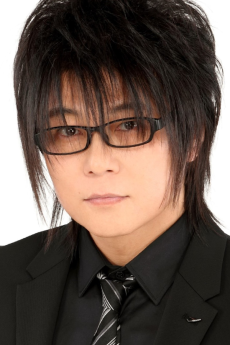
Toshiyuki Morikawa
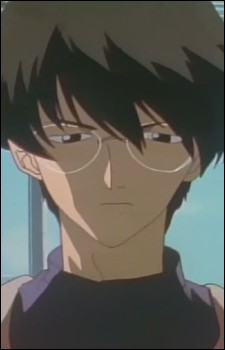
Hikaru Tsurugi
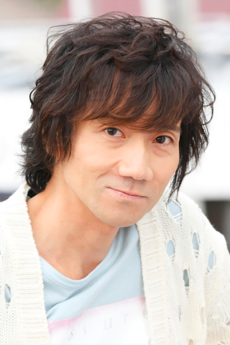
Shinichirou Miki
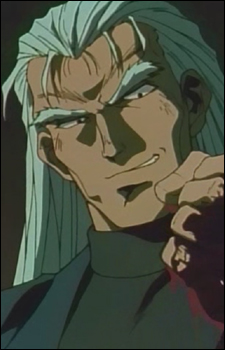
Sergei
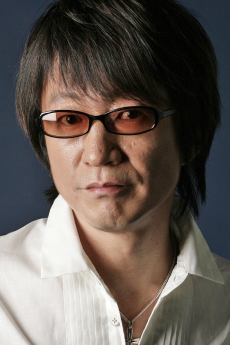
Juurouta Kosugi
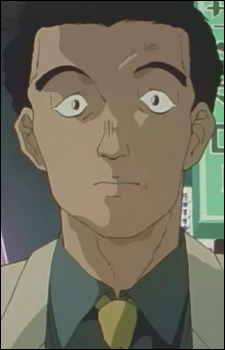
Senichi Tamari

Kenichi Ono

Jinsaku Ajou
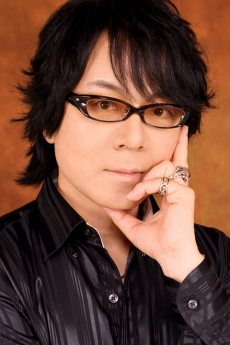
Shou Hayami

Aoi Komoda

Akio Ootsuka
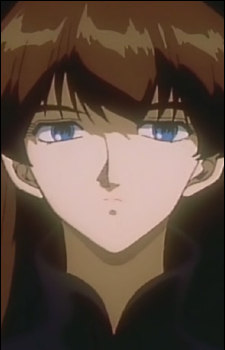
Miho Utsuse

Chiyako Shibahara
EPISODES
Dubbed
REVIEWS

CountZero
75/100Decently put together and interesting historically, with some good social commentary.Continue on AniListRather than a text review, I did a video review of this show:
The original of the follows for the hard of hearing (there are some slight changes in the actual video review):
In January, YouTube changed their criteria for what channels could be monetized, requiring them to hit a threshold of 1000 subscribers and 4000 hours of content viewed over the previous 365 days. As I was nowhere near that time threshold, I realized that trying to hustle to get subscribers through sub-for-sub, or asking relatives and friends to put my channel on autoplay to keep their pets entertained was a losing proposition.
However, this, and seeing my fellow YouTubers with more subscribers and views hustling to reach that threshold made a connection to my brain to an anime series that I was first introduced to in my High School anime club, and which I didn’t get around to watching in its entirety until last year - Key the Metal Idol.
(OP)
Key The Metal Idol is probably one of the earliest mind-screw anime that I’ve seen, pre-dating Neon Genesis Evangelion by about a year. However, the concept comes closer to that of Serial Experiments Lain, but only slightly.
(First Episode)
Our main character is Tokiko Mima, or “Key” for short. She’s a 17 year old girl who either is a robot or believes she is a robot, having been told so by her scientist father and his lab assistant, Wakagi. She apparently has no emotions and is incredibly reserved - similar to Rei Ayanami.
When her father dies in an apparent lab accident - of the kind that anyone with a degree of genre savvy knows is a cover for murder - her father’s video will tells her that if she can make 30,000 friends, she will become human. Realizing that the small town where she lives simply doesn’t have enough people for that, she sets out to Tokyo to become human.
(Second Episode)
After a false start where she’s nearly pressured into doing porn, she is rescued by her friend from her hometown - Sakura, who also came to Tokyo and is working a slew of part-time jobs. Sakura decides that she’ll be Key’s agent and help her complete her goal - but, like some of Key’s peers back home, Sakura thinks that Key is pretending, decides to humor her.
(Key rescuing Tamari)
However, there are a few catches. First - in times of extreme emotion or stress, another personality seems to emerge from Key, one which looks and acts more human, and which also possesses special, almost magical abilities, which catch the attention of those who want to take advantage of those abilities.
(Robot Test from episode 1)
The second is Ajo Heavy Industries and Production Minos, both lead by by a corporate mastermind and mad scientist named Jinsaku Ajo. He is working on a series of robots for the military through Ajo Heavy Industries that are powered by “Gel”, which is extracted human life force.
(Miho Utuse Performance)
On the other side of things, through Production Minos, also has an Idol, Miho Utuse, who is secretly a robot controlled by the real singer, controlled remotely and powered by her own life force.
(Me)
This is where the mind screw comes in, and where the show also gets into some social commentary - particularly on Japanese pop music, idols and idol groups and how the industry treats the women who perform as Idols, either alone or in groups, as disposable commodities. Over the course of the series, Ajo literally uses up the real Miho Utuse, leaving her bedridden and barely conscious, and tries to replace her with another girl who would control the Utuse Robot.
It’s taking the idea of Science Fiction as Allegory, and applying that not to conventional social issues like race relations or sexuality or geopolitics, but to the pop-cultural entertainment we enjoy, how it’s made, how the people who make it are treated.
Key was... very much out of print for the past few years. Viz put the show out on VHS in the 90s and on DVD in 2004, and then it was out of print on physical media until Discotek Media license rescued it and released it in February of 2017.

TheRealKyuubey
90/100Will you be Key's friend?Continue on AniListThroughout your tenure as a student, you probably met a diverse assortment of people… You made friends with those you connected with, feuded with those you hated, and largely ignored those that fell by the wayside. However, there’s an incredibly likely chance you met someone you couldn’t easily categorize… Someone who challenged your perception of how a fellow classmate should act and interact with the people around them. Someone like Tokiko Mima, a quiet, strange girl who speaks in a flat, inflectionless voice, carries a broken speech pattern, and seems to have no interest in the world around her. Now, being young, you probably haven’t heard of the word Aspergers, so you’re more likely to use words like weird, creepy or gay to categorize kids like this. Tokiko, or Key for short, has adopted a category of her own: Robot. And no, she’s not just saying that to troll you, or to offer up an easy explanation for her own behavior. Talk to her Grandfather, and he’ll tell you that it’s true… Or he would, were he still alive.
Yes, Tokiko’s guardian has departed this world, and while she’s old enough by Japanese standards to begin living on her own, he’s left her with one final message; If she goes to Tokyo and makes friends with 30,000 people, she’ll finally be able to become a real human girl. She catches the next bus out, but it turns out the big city isn’t as friendly as she was expecting it to be. In fact, the first few people that approach her make it very clear that they’re looking for something a lot more than just friendship. Luckily, before they can take advantage of her, she’s rescued by an old friend who’d moved away a few years before her, and immediately takes her in. It’s when they visit Sakura’s part-time job at a video store that Key catches a glimpse of an idol concert, and decides that in order to make 30,000 friends, she has to become a pop idol! Will her climb to the top see her becoming Japan’s next big national treasure, or will the robot assassins and even more cold-hearted music executives standing in her way prove to be too dangerous of an obstacle for her to overcome?
Key the Metal Idol was an OVA series that was released by Studio Pierrot between 1994 and 1996. There were no deadlines to contend with, and they were able to release the series gradually in single episode VHS chunks, so they were allowed a lot more leniency with their budget than they would have been with a televised anime. This lack of a financial burden shines through beautifully in what I have to call one of the best looking anime of the mid-nineties. I admit that the art style and limitation of movements may immediately give away it’s age, but it’s held up surprisingly well over the years, even well into the modern age when a show as attention-demanding as this one would likely have obscure visuals and camera angles compensating for all the dialogue going on.
Instead of relying on those kind of cinematography tricks, Key has a much more realistic visual style… Well, realistic with a few anime tropes thrown in, like big-eyes female characters and the all-important villain with long white hair… And it goes a long way in making this old-school anime environment look immersive to the viewer. Stereotypical anime expressions are nowhere to be found, which is something I don’t think I’ve ever said in a review, but it makes even the most useless character look relatable in some way. The difference in lighting and color between Key’s mountain home and the big city, along with an attention to detail that captures every spot of grime and turning gear, tells you all you need to know about both locations. Random people in the background don’t always move, but with smart editing, you’ll tend not to notice this enough for it to bother you.
The realism also extends to the character designs, as almost everyone in the series has your typical dark Japanese hair, which helps Key to stand out in contrast, being the only character other than a certain white haired Russian to have a lighter, grayer tone of hair than anyone else, and the choice to have it go back to brown every time she’s unable to control her emotions makes it easy for us to distinguish between her robotic and human selves. The robots roaming the city also look like about what you’d expect them to… Giant, bulky brutes covered in way too much armor, like the original Ironman suit. All in all, the decision to make almost everything look and move in realistic ways is in deliberate service to the themes of the story, which deal with certain facets of humanity, but aren’t really apparent until future rewatches.
The music is also a clear indicator of the show’s age, as you’d probably expect a show about a girl who may or not be a robot surrounded by beings that are definitely robots to be dominated by EDM or Dubstep in today’s market. While there are mechanical sounds in a few of the tracks, particularly the first few beats of the opening theme, this soundtrack is pure rock and roll, with a few slower ballads thrown in for good measure. Being that it’s an anime about musical artists, there are of course a lot of tracks including vocal performances, mostly from voice actor Chiyako Shibahara, who is an insanely good singer, and she takes care of the stark majority of the in-universe songs. The rest of the tracks are performed by Sario Kijima, including the haunting tunes from the opening and closing videos.
Speaking of the themes, the opening is just mesmerizing, and it employs a style where every single dreamlike shot connects in some way to the shot following it. I know that Railgun and Index also did this at one point (each), but it works so much better here in the way that the constant motion relates to the narrative of the series. The ending theme may have equally beautiful music to the opening, but since the series was released episode by episode, the ending is presented as more theatrical than what most anime viewers are used to, with a scroll of text on a black background, and a slide show of images eventually appearing on screen underneath them. There are also a few background tracks that don’t really fit into the rock definition I mentioned earlier, but they’re fairly low-key, and they serve their purposes fine.
Before I start talking about the dub, I should probably take some time to acknowledge the thing that most of you will notice right off the bat… If you’re old enough to have experienced the original Ocean Studios dub of Dragonball Z, you’ll already recognize at least half of this cast. This Canadian dubbing company doesn’t specialize in anime, rather in western animation, but they do have a few anime to their name, and Key was one of them. Moving on, if you’re a brony, you’ll probably do a double take when I tell you that the role of Key, the flat-voiced girl who says everything with an artificial-sounding mechanical tint, was played by Nicole Oliver, who played a very small number of anime roles… the tragic hero Naomi Misora may ring a bell… as well as the duplicitous Princess Celestia, who could be a more different character from Key. It’s difficult to act when playing such a monotonous character, but Oliver makes up for it by exploding with complexity and emotion every time her human side takes over.
In other words, she’s the perfect actor for the role, but her best friend stands in stark contrast to her. Megan Leitch provides the voice of Sakura, and while she does a decent job about a quarter of the time, she can’t nail down the tone of a scene to save her life. Her voice roles can be counted on one hand, and thank god, because she replaces all of the warmth and comfort that Miki Nagasawa brought to some scenes with over-the-top melodrama, and when she tries to give the character an attitude, she sounds like a child actor from an old Charlie Brown cartoon. She does emotional scenes well enough, but she’s still the weak link that the rest of the cast has to compensate for. Two of their male allies are voiced by the original dub actors of Recoome and BOTH Goku voices, and they do just fine, especially with the obscene amount of dialogue they have to soldier through in the abysmal episode 14.
John Novak, Mark Gibbon and David Sobolov haven’t had much credits to their names, but they managed to play exceptionally intimidating villains as the terrifying record executive Ajo and his cold-hearted henchman Sergei. Brian Drummond, who played the original Vegeta and supplied the world with it’s favorite anime-based meme of all time(“Its over 9000!) plays my favorite character in the series, Hikaru Tsurugi, a talent trainer who’s obsessed with raw genuine emotion and disgusted with the idea of people trying to succeed by showing him what they think he wants to see. He saw the human side of Key once, and was immediately hooked by how honest and fragile it was, which led to him targeting her as a pupil… A pupil whom he would stare at for hours on end, cruelly provoking and depriving her in the hope of seeing that face again. In his first appearances, he comes off as slimy and arrogant, the sort of over-privileged man who’s been spoiled by his own success, but as the methods to his madness are revealed,he goes further and further off the deep end until he finally starts resembling the grinning Death Note Shinigami that would eventually define Drummond’s career.
Is there anyone else left who’s worth talking about? Well, you know, nobody in particular, except for Saffron freaking Henderson. If you don’t know who that is, she played not only Goku in Dragonball, but Gohan in the follow-up series DBZ, at least in the Ocean dub. So who does she play in Key? Some little kid, maybe one of the main characters in a childhood flashback? Nope. Not only does she play the idol character Miho that got Key into becoming an idol in the first place, she sings the English version of almost every single song on the soundtrack. And she sounds phenomenal in them. With her primary character, she has to play not only the healthy sounding robot version, but the weak, shriveled up slave version that nobody gets to see behind the scenes, and she never stops being convincing through any of it. While Sakura may be a special exception, I highly recommend this dub.
As you may have surmised from my plot summary, this is a series who’s deepest details are shrouded in mystery, and at times, it can be a very confusing tale for first-time viewers. We’re offered many questions to ponder as Key begins her journey, but thankfully, the first one we’re encouraged to focus on is whether or not she’s actually a robot. This plot point will eventually fade away as the more serious plot elements start to take form, but as a jumping off point, this one is handled really well. In addition to the hair colors that I mentioned earlier, the series is very careful with how much evidence it gives us towards one conclusion or the other. We never see Key eat, and her grandfather makes a point of telling her that he recently made a new body for her… Which is designed to create a small plothole that’s just hard enough to decipher to make the viewer feel uneasy about what they’re being told.
The only definitive detail clue we’re given is that when Key’s hair color changes, she’s somehow able to subconsciously perform supernatural feats, such as levitating people and objects, and making machines go on the fritz. She’s often shown nude, particularly in the first episode, but these scenes are so clinical and cold that they can hardly be called fan-service at all. It feels more like seeing C-3PO with his gold plating off than a seventeen year old girl in her birthday suit. Oh, and before anybody suggests that the animators just don’t know how to create a sexy nude scene, her friend Sakura has a shower scene that exudes sexuality, despite being ten seconds long and fitting into context as a hygienic shower between jobs.
And yes, that’s another plot point that makes the possibility of Key being a robot more apparent… Her best friend is unmistakably human, to the point that I’m pretty sure I’ve known about a dozen people like her, both male and female. While Key just kinda exists in Sakura’s apartment, taking advantage of the shelter being offered to her, Sakura is off working three different part-time jobs to pay for her rent and food costs. And they’re not particularly glamorous jobs, either… Pizza delivery, garbage truck directing, and video store cashier. Most people in that kind of situation would look for some kind of break, right? Well, earlier, I mentioned that Sakura saved Key from some shady individuals that were looking to produce the first ever robot-girl porno. What I didn’t mention is that they made a similar offer to Sakura when they caught up with the two girls later. Now, Key showed a mild sign of humanity when she realized what they were doing and tried to excuse herself, right before being rescued, but Sakura reacts a little differently. She identifies them as the sleaze that they are, and refuses to work for them… Until they bring up the money she’d make. She doesn’t accept their offer, but she does falter, however briefly, as it would be a break from the daily grind.
We all have morals, we all have standards, and we all have certain extents to which our dignity can hold out… But when we’re treading water, magical solutions can become tempting. Would Sakura have accepted if her friends hadn’t been there? I don’t think so, but the fact that she’s able to choose her own abilities and work ethic over a magical solution that may end up hurting her in the long run is the exact opposite of Key, who doesn’t believe she has the capacity to make 30,000 friends without the magical solution of becoming an Idol, which in this series turns out to be a way more dangerous pursuit than porn. This difference between them plays up not only the robotic elements of Key’s personality, but also the ultimate theme of the series… The dilemma between reality and fantasy.
There are two rather popular topics that Key the Metal Idol likes to discuss in relation to this theme… They’re topics I’ve seen brought up many times before, and they both have a lot of room for different perspectives. The first one is, obviously, the true life of being an Idol. This is far more a Japanese subject than it is anywhere else, as Japan’s Idol culture is a monster in it’s own right. Perfect Blue explored how Idols are subjected to the controls of not only the people managing them, whom they have to do uncomfortable things to please, but by the perceptions of their fanbases, whose acceptance or refusal of the changes they make can have devastating impacts on their careers. A more recent show called Love Live took a different route, showing how hard and sincerely people have to work to become idols in the first place.
The second topic is the relationship between man and machines. Chobits is perhaps the most noteworthy example, as it explores the hikkikimori’s mind set, with a focus on how a computer may be more equipped to offer a man the perfect, idealized woman than actual women are. Other titles like the Matrix franchise have explored the idea of creation, and how the machines we birthed could eventually conquer us and take over the world, turning on their creators as man have with God. There’s also a lot of fiction dealing with artificial intelligence in this way, but shockingly, Key the Metal Idol doesn’t even touch the subject of AI. Instead, it has more in common with the Fullmetal Alchemist idea that you have to trade life to create life, even if it’s just the illusion of life.
Through it’s plot, Key combines these two topics in many intriguing ways, particularly when it comes to Ajo and his business ventures, one of which manages the idol Miho. Key believes that becoming an idol like Miho will help her transition from robot to person, but what she doesn’t know is that(and this is only a small spoiler) the real Miho is locked away backstage, attached to a headset, controlling a robotic puppet on-stage while she withers away, her life itself unappreciated by those who own her. What Key expects is the exact opposite of what’s really happening, because becoming an idol in this universe is a process where a human becomes a robot, and not the other way around. In other words, an object wishes to become a person through means that actually turns people into objects. Add that to the fact that robots can’t move on their own, and are powered by human life force, and you have the perfect metaphor for human beings trying to create life in their own image, attempting to play God and failing miserably at it.
And if you need more proof about the religious angle of this theme, there’s an actual religious cult that plays a major role in the plot, painting Key’s abilities as miracles, and putting every ounce of effort into protecting her from her aspirations to join the world of Idolhood… Which, if read from the perspective I mentioned earlier, is a pursuit removed from God. When in the service of this cult, Key’s powers are used with more benevolence than at any other point in the series… She even brings a sick little boy back from the brink, something she didn’t even try when a far more tragic death occurred right in front of her towards the end of the series. The significance of religion in this equation is established even more firmly by the fact that robots eventually wipe out this cult, as if to say that man, as God’s creations, have created something that kills God… An idea further supported by a metric butt-ton of expositive backstory later on. And thus you have the main driving theme of the series… The reality of humanity vs. the fantasy of created humans. Robots that are built to fight wars for us or even just perform for us need to drink our life force to work, just like how idols that are meant to simultaneously uphold our moral ideals as well as our standards for youth and beauty are just being unrealistically objectified.
Key the Metal Idol brings us a tightly written narrative, flawlessly weaving different topics into a theme that beats at the very heart of the story, all while inviting us along for a poignant mystery as to how any of these circumstances came about, what it means to the world, and just where it’ll all take our adorkable android heroine. There would have to be some serious flaws in it’s execution for me to give it anything less than a perfect score… But alas, that elusive 10/10 will not be reached today. For you see, even though the animation holds up over twenty years later, and even though the plot is dripping with depth, the mystery still needs to unfold properly… And it’s with this element that Key fumbles. See, the final two episodes are each feature-length, at over 90 minutes apiece, and it deeply saddens me to say this, but episode 14 is borderline unwatchable.
In order to justify basically everything that had happened thus far in the story, the writers needed to explain to us who Key was, what she was, and how these life force eating robots came to be. And here’s the beautiful part; They could have done this by airing a 26 minute flashback episode from Key’s grandfather’s perspective. Instead, the entire story… Intricate details, motivations, speculations… Is fed to us in the form of exposition while Grandpa’s story is shown to us in the background. It’s bad enough that the majority of it is revealed in conversation between two supporting characters, but the rest of it is coming from some random old dude who telling his tale to literally nobody as he constructs a new robot. And all the while, the two main characters are huddled in their apartment, hugging each other. How’s that for female lead characters? They don’t need to know what’s going on… They just need to be emotionally supportive while the men-folk work things out for the audience. The final episode manages to improve immensely from there, including delivering a heartbreaking death scene out of the clumsy, stupid set-up that 14 gave it, but at that point, the damage was already done.
Key: The Metal Idol was originally available from Viz Media, but has unfortunately been out of print since 2004. You can find the three individual DVDs online for a variety of prices, or you can find them with the official series box for anywhere from sixty to 100 dollars. Copies with the slim-pack CD Soundtrack still inside of them will run you quite a bit more, although I was able to find my copy at FYE for 26 dollars. It can be viewed legally on Viewster.com, and pretty much nowhere else. Soundtrack CDs can be found in varying online locations as well.
This series came so close to being perfect that it tortures me to see it fall so far short right at the end. I guess you can blame the sudden lapse in judgement on the huge time lapses between each episode’s release… There was a seven month gap between episodes 13 and 14, and I while I have no idea what happened in that time, I have to assume that somewhere along the way, Director Hiroaki Sato must have gotten bags of letters from angry fans that he’d made the mistake of treating with respect and intelligence saying that they didn’t understand what was going on, and wanted him to stop playing coy and lay it all out on the table. I mean, what else could it be? This series was in production for three years, with fans loyally picking up each volume, even though they were coming out at month-long intervals at best, so that in 1997, after going all winter without a solid release, fans just over-reacted and started demanding closure, even at ass-expensive Japanese VHS/DVD prices. I can’t entirely forgive it for this blunder, whatever the reason behind it was, because the unwatchable episode is NOT skippable, but you know what? I can still whole-heartedly recommend this series, even with that small warning attached to it. If you’re looking for a mature anime with R-rated content and deep, complex themes to back it up, and you don’t mind getting over one major hurdle at the end, I highly recommend checking this series out. You’ll feel challenged in a way that’ll have you coming back to it over and over again, just like I did. I give Key the Metal Idol a 9/10.

PrinceZariel
61/100Key has a lot to say, but can't quite phrase it correctly.Continue on AniListKey The Metal Idol is a 15-episode OVA that aired between December 1994 and June 1997. I originally heard of this show while browsing KaiserBeamz's catalog on YouTube. (They make a lot of fantastic videos about retro anime and I would highly recommend checking them out). It was their video that got me interested in the series. I mean, a robot who travels who needs 30,000 friends to become human so she tries to become an idol? Who wouldn't want to watch that? I remember clicking off the video a few minutes in and dropping everything to watch Key. And, after finishing the series, I can confidently say that the anime is quite the mixed bag. Let's discuss why.
According to its Wikipedia page, Key "was produced and sold as an 'experimental' title," and once you start watching the series, that experimental factor makes itself apparent pretty quick. The episode lengths vary wildly. You will find yourself sitting down to watch a normal 30-minute one or a literal 90-minute movie with movie credits and everything. I don't think the variance is a problem until it comes to the two movies (episodes 14 and 15). The reason for which I will discuss below.
If there's one thing to say about the show, it's that it will definitely surprise you; Key is not what it seems. Despite the simple synopses provided by sites like this one and MAL, the plot presented in Key is rather complicated. The story is not just about a robot trying to make 30,000 friends, it's also about corruption, fan culture, the military, modern technology, and a statement about Japanese life at the time. There are so many branching storylines with characters doing their own thing and uncovering their own clues about what's going on. This, in my opinion, is both a strong and weak point for the anime. On the strong side, these storylines are incredibly interesting. The show had me on the edge of my seat, waiting for the next big reveal. I wanted to know what the true story of Key, the robot, was and how it affected the plot. The way the story was told was also quite interesting. There is a lot going on at once and sometimes it's a little difficult to figure out what happened where in the timeline, but for the most part it works. The story becomes deeper and more complex as you watch it, adding different layers to the plot that makes you really think about what is going on.
However, since there are so many storylines, some will ultimately be less developed than others. Some are complete, some are rushed, and others feel borderline abandoned. It would take a genius writer to fully flesh out everything that is going on in this anime with the little time that they have and the writers behind Key were not up to the task. Come episode 14, the first of the two movies, they must have realized that the plot of Key wasn't explored as far as it needed to be for the audience to be caught up before the final episode. To compensate, episode 14 is legitimately an hour and a half of exposition. It feels like the only reason the final episodes are so long is so the writers can pump you full of information they couldn't fit into the story before they send you on your way. The characters aren't even doing anything in this episode. Two of them just sit down and talk to each other about the plot while one walks around and talks to himself about the plot. This is horrible storytelling and I'm surprised it was even allowed to happen. It ruined my enjoyment of the show. I would say that the plot has so much potential, but it doesn't realize it.
Another experimental aspect of Key is its editing which, like the episode length, varies drastically. It goes from unnoticeable, to a little weird, to downright unwatchable in a split second. The first three episodes are especially bad editing-wise. The majority of the editing decisions actively distract from the anime and make it hard to watch. It wouldn't surprise me if people stopped watching after these episodes due to this, but I would they choose to press on for the interesting story alone. The one good thing I can say about the editing is that at least it's done with purpose. The decisions are unconventional, yes, but at least you will be able to understand why these moments are being edited the way they are, even if it doesn't stick the landing. The editing is used as a tool to express how the characters are feeling in that specific moment. One of the major problems is that the editors don't know how long a shot should stay on screen for. Shots will flash on screen for less than half a second or stay on screen for what feels like an eternity when they don't need to. It's a mess.
The music is, for the most part, equally a mess. Songs play at inappropriate times and are usually very loud. I ended up laughing most of the time Key's theme would play because it was edited in rather poorly. The songs by themselves aren't bad, but the way they are used is rather awful. As the anime goes on, the music and sound mixing/editing gets a little better. Nothing to write home about but it isn't as distracting as it was earlier in the series.
The last thing I want to talk about is the characters because they are what really hold the series together besides the plot. The characters are great in my opinion. Well, the main cast of characters is great. I thought Key was just going to be there to be the adorable, comic relief robot that doesn't understand humans and talks about herself in the third person. And even though she does do some of that, she actually has a lot of depth to her and my opinion of her as a character completely changed by the end of the series. Tataki, Wakagi, Sergei, Ajo, Tsurugi, and Prince Snake Eye are equally great. They all get full arcs and we're allowed to explore their character and how they change over the course of the anime. (Prince Snake Eye is the most interesting character in my opinion). If you've watched Key, then you've probably realized that I've left out Sakura. That's because I think she's the least developed of the main cast. When I thought about it, I came to the conclusion that she doesn't really do anything. She's sorta just there for Key. All of the female characters in this series are used more as props than actual people (even Key). I think that's part of the point the anime is trying to make. Prince Snake Eye does talk a lot about showbiz and how it'll suck the life out of you. If that is actually what the anime is going for, I think they could have delved further into that topic because it's interesting but they don't comment on it much.
Overall, Key is a really interesting show. It's one of the more creative anime I've seen and I applaud it for that creativity. It's always nice to see something attempt to tell a story in a more unique way or to even tell a different story than the ones we're used to. However, just because a show is creative and unique, that does not make it good. Key has several flaws. Whether it's the terrible editing, music choices, or exposition problems, there will be something that severely annoys you about this show once you finish it. I don't think the show is terrible, in fact, I'd recommend watching it for the story, but that doesn't change the fact that some scenes are legitimately unwatchable and how the anime stops for an entire hour to explain things to you it should have already explained.
SIMILAR ANIMES YOU MAY LIKE
 MOVIE DramaPERFECT BLUE
MOVIE DramaPERFECT BLUE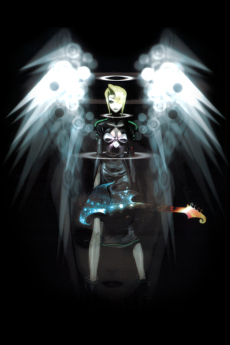 ANIME AdventureKachou Ouji
ANIME AdventureKachou Ouji ANIME ActionGUNSLINGER GIRL
ANIME ActionGUNSLINGER GIRL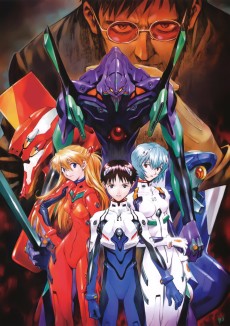 ANIME ActionShin Seiki Evangelion
ANIME ActionShin Seiki Evangelion
SCORE
- (3.35/5)
MORE INFO
Ended inJune 18, 1997
Main Studio Studio Pierrot
Favorited by 126 Users


